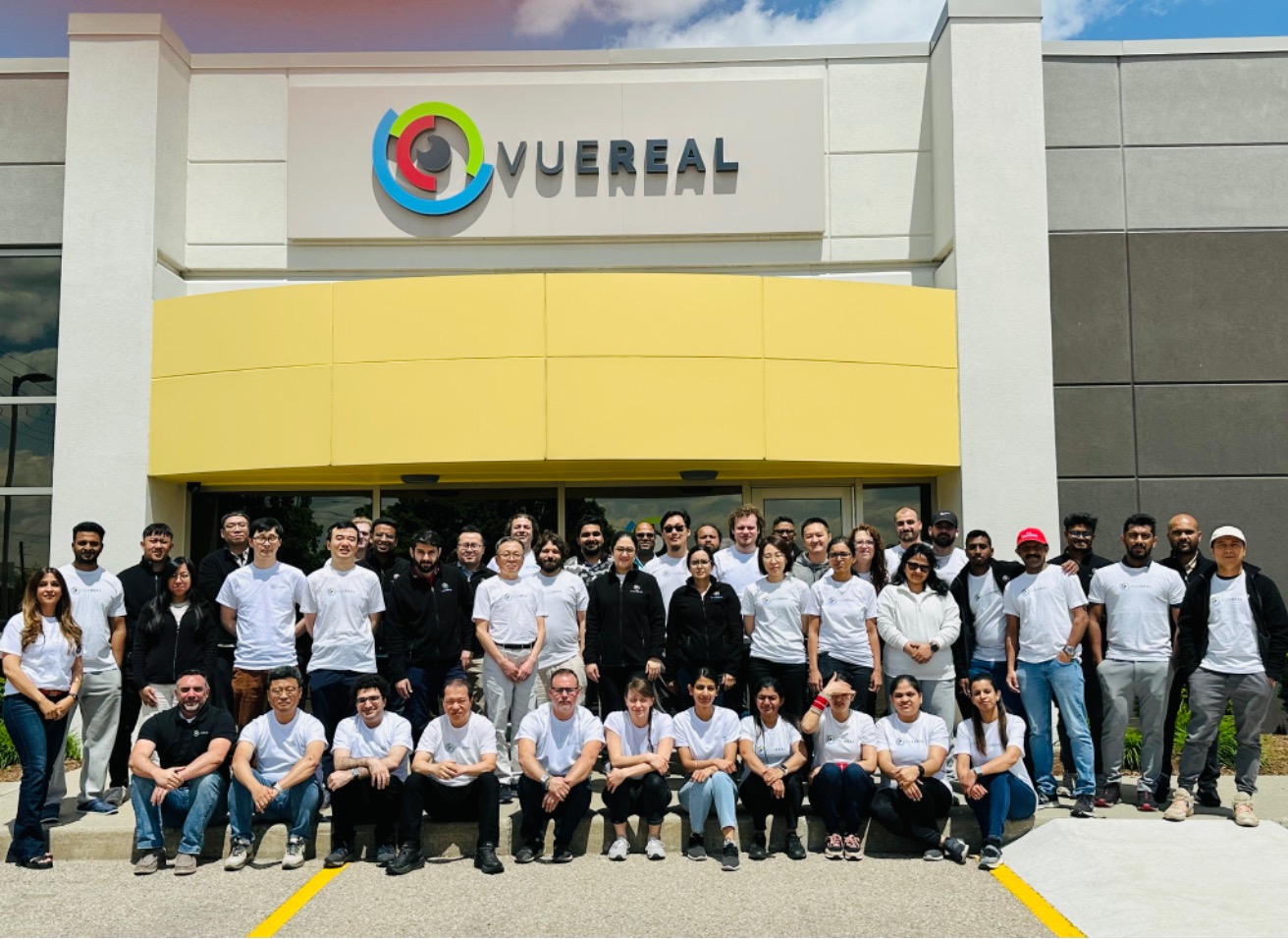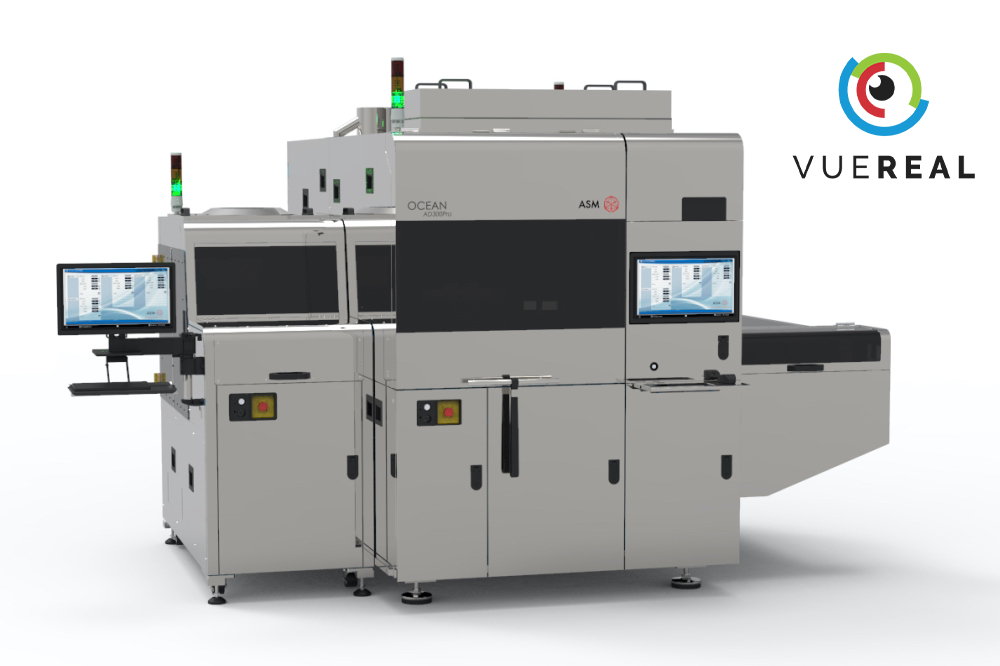Reza Chaji remembers his first drive down King Street into Waterloo with his wife, who noticed the city’s quiet charm. Years later, Waterloo has become one of the fastest-growing communities in Canada. It’s now home for Chaji, where he’s built a life, a family, and a company that’s driving change in automotive and consumer display technologies and broader micro semiconductor fabrication.
“We love it. It’s perfect,” said Chaji, CEO of VueReal, a tech company that specializes in developing and commercializing advanced micro-LED displays and other micro semiconductor technologies ranging from sensors to chiplets. “Waterloo has everything a big city has, but here, you can get everywhere quickly.”
Chaji’s journey to Canada started in Tehran, Iran, where he earned his degrees and was offered a position with an American company. He opted to join its Canadian branch and eventually joined the University of Waterloo, where his early work set the stage for VueReal’s innovations.

Founded in 2016, VueReal has been a key player in major industries, including automotive, providing microLED display and lighting solutions for top global OEMs. The company recently announced its plans to double its manufacturing space and add a new production line, which will produce displays for customers and serve as a blueprint for partner facilities.
“It’s exciting and overwhelming at the same time. The company is growing rapidly and there’s a lot of interest in our technology and our product,” said Chaji. “It’s a position you work hard to be in and the opportunities are significant. We’re bringing in many veteran executives who’ve been in successful, high-growth situations so they can help us navigate this transition smoothly.”
“When you visit our facility, you’ll see our MicroSolid Printer™ in operation. In Waterloo, we’re developing a pilot line with an automotive company. Our goal is to scale up to producing one million displays per year,” he said. “This production module can be replicated for higher volumes by adding more printing units. And if our partners want to produce displays at their own facilities, they can integrate our turnkey MicroSolid Printing platform into their operations.”
The expansion is expected to have a significant impact on Waterloo Region, creating new jobs, with positions ranging from executive roles to technical experts, which will stimulate the local economy and strengthen the region’s tech ecosystem.
“We’ll impact the entire supply chain, including our suppliers, vendors and partners. We already work with about 20 to 30 local partners and vendors,” said Chaji. “Our technology will also have a revolutionary impact on the companies that use it.”
As electric vehicles (EVs) and autonomous driving become more common, the need for high-performance displays and sensors is growing. Chaji says VueReal’s microLED technology, enabled via its MicroSolid Printing platform, is known for its high brightness and transparency and is well-suited for these applications.
He also says the shift to self-driving technology highlights the need for cars to communicate effectively with both passengers and their surroundings. For instance, cars could signal warnings or indicate when it’s safe to cross. This opens up opportunities for new user interfaces, such as advanced lighting, displays and sensors. VueReal is working with automotive companies to address these emerging needs.

“Our MicroSolid Printing platform is the perfect fit for this transition,” said Chaji. “The platform can produce energy-efficient displays with very high brightness compared to traditional displays. The displays can also be very transparent. Essentially, they’re like glass until the image turns on and then you see it’s a display.”
VueReal is also expanding into the consumer market with a focus on wearable devices, TVs, IT applications and augmented reality (AR) products with its MicroSolid Printing platform. Smartphones are also on the horizon.
“One of the areas that I’m particularly excited about is the impact our technology could have on health and fitness,” says Chaji. “The same way we print these tiny LEDs, we can print different types of sensors to create devices that enable a lot of personalized health data.”
“We can create a healthier society and an easier life for everybody,” he said. “I’m hoping by the end of this decade, we’ll be there. We’re already enabling a significant industry breakthrough through cost-effective and sustainable manufacturing of microLED displays and lighting solutions at scale for our global customers.”

